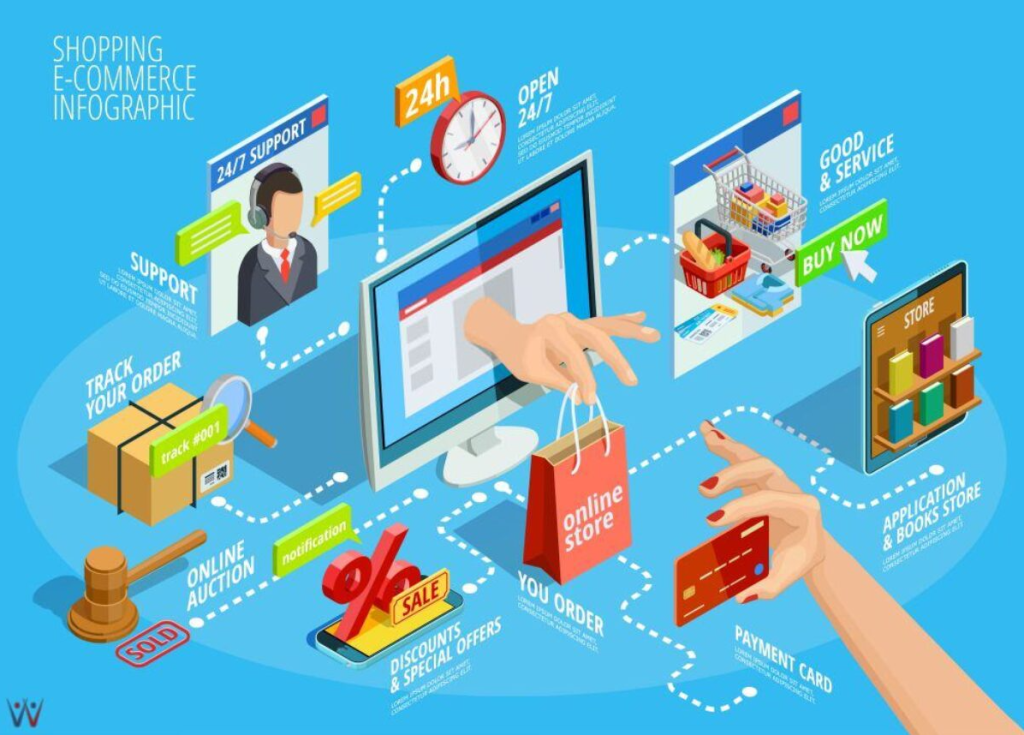Understanding the Evolution of Ecommerce
In the contemporary landscape of ecommerce, the concept of Electronic Commerce, or Ecommerce Business, has emerged as a transformative force. Initially conceptualized as a means to facilitate online transactions, Ecommerce has evolved into a multifaceted ecosystem encompassing a myriad of platforms, technologies, and business models.

The Birth of Ecommerce: A Historical Perspective
The origins of Ecommerce can be traced back to the 1960s, with the development of electronic data interchange (EDI) systems, which enabled businesses to exchange documents and conduct transactions electronically. However, it was not until the advent of the internet in the late 20th century that Ecommerce began to truly flourish.
The Rise of Online Marketplaces
One of the defining features of modern Ecommerce is the proliferation of online marketplaces. Platforms such as Amazon, eBay, and Alibaba have revolutionized the way goods and services are bought and sold, offering consumers unparalleled convenience and choice. These marketplaces serve as virtual hubs where buyers and sellers from around the globe converge, creating a truly borderless marketplace.
The Role of Technology in Driving Innovation
Central to the success of Ecommerce is the relentless pace of technological innovation. From advanced payment processing systems to sophisticated data analytics tools, technology has played a pivotal role in shaping the Ecommerce landscape. Artificial intelligence, machine learning, and augmented reality are just a few examples of technologies that are poised to further disrupt and revolutionize the industry.
Harnessing the Power of Data
In the digital age, data is king. Ecommerce companies leverage vast amounts of data to gain insights into consumer behavior, preferences, and trends. By analyzing this data, businesses can personalize the shopping experience, target their marketing efforts more effectively, and optimize their operations for maximum efficiency.
The Future of Ecommerce: Trends to Watch
As we look to the future, several key trends are poised to reshape the Ecommerce landscape. The rise of mobile commerce, the growing importance of social commerce, and the emergence of blockchain technology are just a few developments that will influence the direction of the industry in the years to come.
Embracing Omnichannel Commerce
In an increasingly interconnected world, the lines between online and offline commerce are becoming increasingly blurred. Ecommerce companies are embracing omnichannel strategies that seamlessly integrate physical and digital channels, providing consumers with a seamless shopping experience across multiple touchpoints.
The Importance of Cybersecurity
With the proliferation of Ecommerce comes increased risks of cyber threats and data breaches. As consumers entrust their personal and financial information to online retailers, ensuring the security of this data is paramount. Ecommerce companies must invest in robust cybersecurity measures to protect against potential threats and safeguard consumer trust.
Conclusion
In conclusion, Ecommerce has emerged as a dominant force in the global economy, transforming the way we buy and sell goods and services. With its relentless pace of innovation and technological advancement, Ecommerce shows no signs of slowing down. As we look to the future, businesses must continue to adapt and evolve in order to thrive in this dynamic and ever-changing landscape. By embracing new technologies, harnessing the power of data, and prioritizing cybersecurity, companies can position themselves for success in the digital marketplace.
